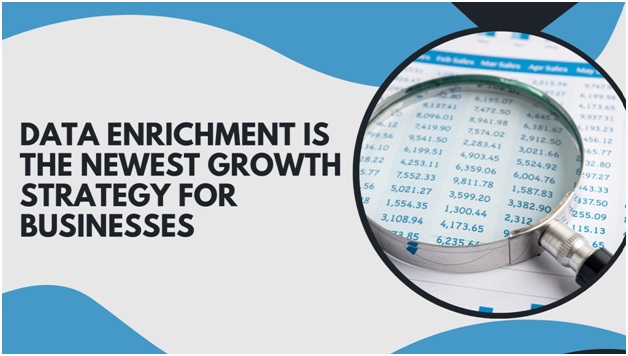Enriching data is an integral part of data management; it involves adding new information such as customer insight to existing sets of information in order to make conclusions about them more accurate. Businesses can use data enrichment to make different decisions or use the data more effectively when conducting analysis. This can produce insights you might not have arrived at otherwise, resulting in improved decision-making or analysis.


Data enrichment can be used in B2B to qualify leads and improve the accuracy of your existing databases, as well as to help your marketing. You can also use data enrichment for predictive modeling, which helps companies make predictions about future events or trends.
Read this article to know more about the benefit of data enrichment. Additionally, learn the data enrichment process and key strategies that will help your business make more informed decisions.
What are the Benefits of Data Enrichment to Your B2B Business?
In today’s economy, it is essential for businesses of all sizes to have access to the right data in order to make wise decisions and compete in a competitive marketplace. When it comes to B2B data enrichment, there are many benefits:
1. Better Understanding of Customers
Data enrichment can help B2B businesses gain a deeper understanding of their customers by providing additional insights such as demographics, preferences, purchase history, etc. This can help businesses tailor their marketing strategies and offerings to better meet the needs of their customers.
2. Improved Lead Generation
By enriching data with additional information, B2B businesses can better identify potential leads and target them with relevant messaging. This can improve the efficiency of their sales and marketing efforts and increase the chances of converting leads into customers.
3. Enhanced Personalization
Data enrichment can provide B2B businesses with insights into customer preferences, behavior, and buying patterns. This can help businesses create personalized experiences and offerings that are tailored to individual customer needs. This will help any B2B business bring in more happy customers and increase their sales.
4. Data Compliance
Data enrichment helps B2B businesses maintain compliance with data protection laws such as GDPR. It allows for regular scrubbing of databases, adhering to data profiles of prospects, and preventing repeat messaging. Outsourcing data enrichment to a reputable company committed to GDPR compliance can ensure that data is enriched while following regulatory requirements. By utilizing data enrichment, B2B businesses can maintain compliance and avoid penalties for data protection violations.
5. Competitive Advantage
By leveraging data enrichment, B2B businesses can gain a competitive advantage by better understanding their customers and their needs, improving their sales and marketing efforts, and making more informed business decisions.
6. Increased Data Accuracy
Data enrichment can help B2B businesses ensure that their data is accurate and up-to-date. The whole process of data enrichment helps to fill in the gaps in the database to make the database complete with helpful information and insights. This can help improve decision-making and reduce the risk of errors and misinterpretations.
7. Cost Effective
It allows for targeted marketing and sales efforts, leading to lower cost-per-acquisition for new customers. Enriched data also reduces time and money spent on prospecting and outreach research, while focusing on relevant data. This identification of new market opportunities can expand prospects and increase sales. Overall, data enrichment saves resources and boosts revenue.
8. Boost Sales Team
Data enrichment can boost B2B sales teams. By improving data management, identifying potential leads, and understanding customers, sales teams can be more effective and increase sales. Enriching data also helps create targeted marketing campaigns, while tracking performance for necessary campaign adjustments. Ultimately, data enrichment helps B2B businesses improve their sales and marketing efforts and increase their revenue.
What are the Process and Key Strategies for Data Enrichment?
Enriching data with better quality is essential for making the most of analytics and decision-making. There are several steps you can take to achieve this, including ensuring that your data is accurate and up-to-date. Here are some key strategies:
1. Ensuring Higher Data Quality
It is essential to have high-quality data to make informed decisions and achieve meaningful results. To ensure high-quality data, many key strategies must be followed. These strategies may include ensuring the accuracy, completeness, timeliness, and relevance of data. Additionally, data enrichment can help increase the value of data by providing additional information that can be used to improve decision-making. Four easy steps can be taken to raise the quality:
- To identify and understand abnormalities, profile the data after accessing the data sources.
- Establish the standards (metrics) for data standardization and cleansing to ensure that it is appropriate for the task.
- Use the established rules for data quality procedures and after that double-check the data.
- Continuously assess data quality for all business goals and applications.
2. Building a Stable ETL Pipeline
Once the data has undergone quality checks and cleaning, it can be merged with the existing database using ETL (Extract, Transform, Load) processes. This ensures that all production systems are updated with the latest data. Three phases can be identified in the ETL process:
- The information is extracted from the current database during this phase.
- The data are improved and put into a more practical format during the transformation phase.
- After being transformed, the data is now loaded into the necessary location and is prepared for use.
3. Data Matching and Data Deduping Operations
Data matching is a key step in this process to carry out effective data enrichment, as it allows for the identification of relevant information from a dataset. Additionally, data deduping can help remove duplicate records from a dataset to improve its searchability and usability. By understanding these processes and employing the appropriate strategies, you can make your data more accessible and useful for research purposes.
4. Data Segmentation
Data segmentation involves analyzing data to identify patterns and characteristics that differentiate one group of customers or prospects from another. These characteristics could include demographic information such as age, gender, income, or location, as well as behavioral information such as purchase history, website activity, or social media engagement. Before you begin data enrichment, it’s important to determine your target market and business goals. Once data is segmented, it can be used to develop targeted marketing campaigns that are more relevant and compelling to specific groups of customers.
5. Information Upgrading and Checking
Updating and monitoring data are key strategies for data enrichment. By keeping an eye on changes that occur within your dataset, you can make sure that the information is as accurate as possible. Additionally, by regularly monitoring your data, you can ensure that any discrepancies are detected and corrected as soon as possible. Additionally, by updating your data regularly, you can also create a more accurate picture of your target market.
Take Away
For B2B marketers, it’s important that they have access to accurate and up-to-date information on the target audience. However, to keep your data enriched, there are various approaches to data enrichment that they can undertake. However, manual enrichment of large sets of data can be a daunting task. In such cases, data enrichment services can be a viable option.
By partnering with a reputable data enrichment service, you can gain access to the right tools and resources needed to effectively clean, merge, and analyze your data. Outsourcing this work can free up time for you to focus on other aspects of your business. If you’re not using data enrichment services in your B2B marketing efforts, we encourage you to give it a try — it could make all the difference in your next campaign.
















